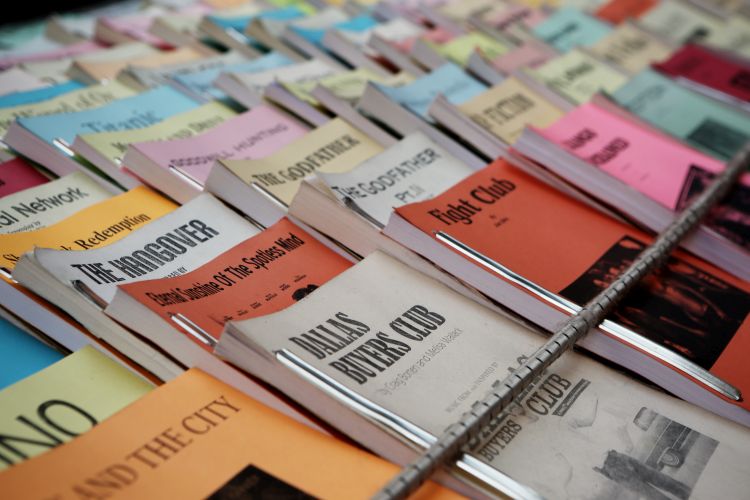There was an interesting article in The Guardian the other day about a translation error in the Spanish version of Game of Thrones that has prompted much ridicule in Spain.

In one scene in season 8, episode 3 of HBO’s hit show, Ser Davos Seaworth realises that Daenerys, who is supposed to carry out an attack on their signal, is not able to see them, so he says, as you might expect: “She can’t see us!” In the Spanish dub of the show, this has not been translated as “¡No puede vernos!”, the equivalent Spanish expression, but as – wait for it: Sicansíos. So instead of a translation of the phrase, Spanish viewers received a phonetic transcription of the English sentence.
While some viewers have used this as an opportunity to complain about bad translations and useless translators, people in the industry have seen it as a way to illustrate the less-than-perfect working conditions for translators and voice actors.
So let’s briefly unpack what happened here.
The ideal way to translate a TV show
How do you make sure you get a good quality translation? The ideal way to translate a TV show is clearly to have enough time to do it and to have a script to go by.
If you’re translating text which doesn’t require too much research, you can easily do 2500 words on a normal working day. Some people might do up to 4000. However, if you translate for the screen, you’ll ideally want to roughly match the mouth flaps with your translation, and at the very least, you want to make sure the translated text isn’t too long, so the character won’t still be talking when their mouth has long stopped moving.
Having a script is an enormous help, as going by the original voice track alone can be risky: the sound quality of the original language may be a bit iffy, some words may be strangely pronounced, there might be several people talking at once and so on. If you have a script to go by, this should not be too problematic.

I remember once when I worked as an intern at a subtitling company – maybe the most entertaining job I’ve ever had – and everyone was made to listen to a reality TV show where someone was making a bad pirate joke. They just couldn’t understand what was being said and so the headphones went from person to person, with everyone looking stumped and no one able to make out the words. Eventually, they gave the headphones to the intern (me!). “What is a pirate’s favorite pet?” the joke went, and then the answer. “Aardvark.” Needless to say I was very proud that of all the linguists in the room, I was the only one who understood the joke. But why didn’t the others understand it?
For one thing, it’s not unreasonable that even a good translator has never come across aardvarks in their education or in the books they read or films they watched in the foreign language. Of all the animals you might talk about in your daily life, the aardvark is not usually one of them. Aardvark, incidentally, is a word that came to English via Afrikaans and means “earth pig”, but another maybe more common name for it is “anteater” – which no doubt my colleagues would have understood. (By the way, the German word for an aardvark is “Erdferkel” – literally also “earth pig”).
Also, pirate jokes don’t exist in German. When people talk about pirates in English, they’ll say things like “Arrr, the sea be a harsh mistress! Yarr.” This whole idea is foreign in Germany, so unless you’ve come across it by chance, you’ll just be thoroughly confused and won’t even get WHY a pirate’s favorite animal is an ARRdvark.
Anyway, all this to say that there are uncommon words out there that even experienced translators may just never have come across. And you know, that’s totally okay. That’s why I enjoy the job of being a translator so much – you learn something new every day. If you can’t figure out what you’re hearing, you spend some time on it, you research it if it’s a new word, you figure out what it could be. If it’s a thick accent that’s stumping you, you find someone who can help you decipher it. All it requires is a bit of time and effort.
The less-than-ideal way of translating a TV show
And therein lies the crux of the matter: if there is no time, you can’t put in the effort.
It’s not entirely clear to me how much time translators and voice actors have for translating and recording one episode of Game of Thrones. Some Spanish newspapers report that the time between the original airing of an episode and the airing of its dubbed version is 24 hours because HBO is afraid of leaks and piracy. That doesn’t really tell us anything, though, because of course hypothetically, translators and studios could get the show weeks earlier to work on. HBO doesn’t release the English episode the minute it’s completed, after all. Also, an article in El Comercio quotes Spanish voice actors as saying they get sent video material with huge watermarks, which also wouldn’t be necessary if the episode had already aired.
Here’s what Jon Snow’s voice actor had to say in the article: “They have started sending us black episodes with little circles where only the head of our character appears.” (Although from what I hear, that’s pretty much what the actual episode was like…)
So what seems fairly obvious is this: They have little time for translation and voice-over work, they have no script, and if the screen only shows little talking heads in a sea of black, they’ll also not have much context.
In light of this, is it really surprising that they couldn’t figure out what was being said, that they may not have had the time or opportunity to ask anyone?
Ways to improve
In order to avoid such mistakes in the future, here’s what I’d suggest: Give translators a script and/or give them the time they need to create a good translation. Also, trust that they will honor their NDAs and don’t be so worried about leaks. I honestly believe that people want to pay for their entertainment, whether it’s books, movies, TV shows or anything else. And if not, any attempt to prevent piracy still won’t prevent a show from being torrented hours after release. So let’s give professionals a chance to do their job right and help provide good quality content to the happy audience.
1For those with problems undertstanding Merida in this clip: “I gave my mommy a cake, she turned into a big bear, my old man tries to do her in. If that’s not a pure mess, I don’t know what is.”
Leave any comments below and sign up to my newsletter to never miss another post!





